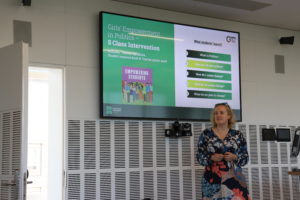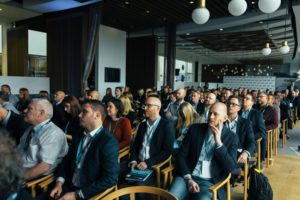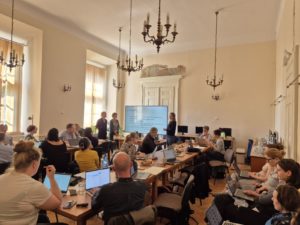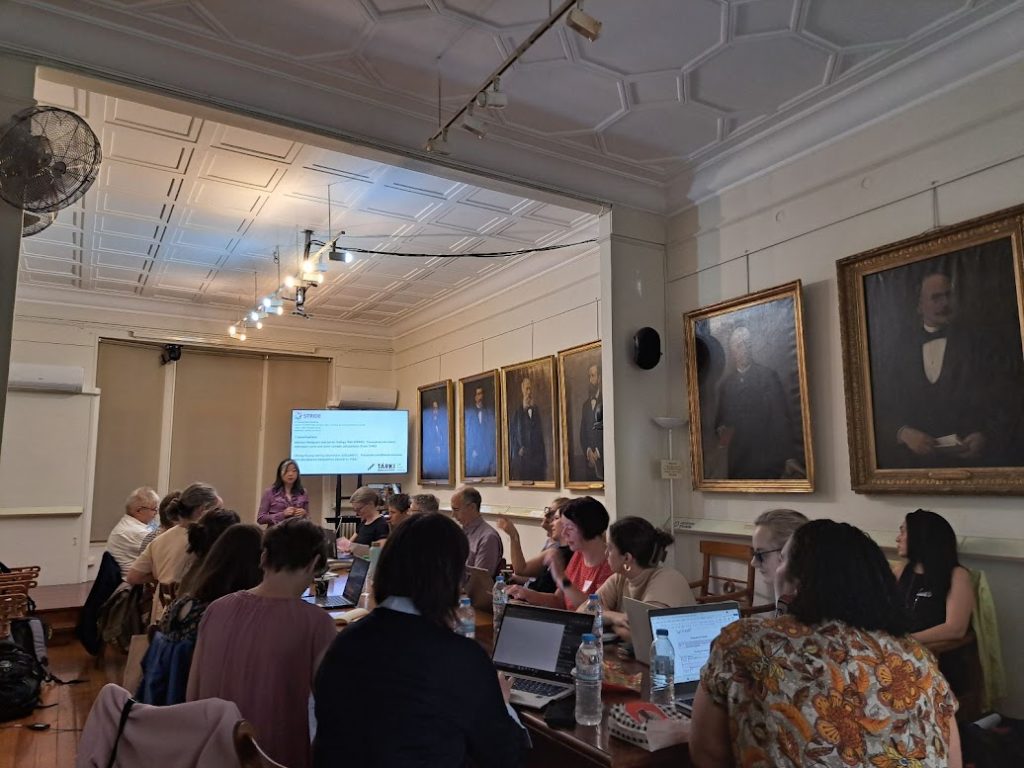The 14th edition of the Lifelong Learning Week (LLLWeek), held from November 18-22 brought together key stakeholders from across Europe to discuss the challenges and potential solutions to improve education and lifelong learning policies and practice. Organised by the Lifelong Learning Platform – European Civil Society for Education (LLLP), this year’s overarching theme, “21st Century Challenges for the Educator Profession: A Call for System Change” focused on the evolving role of educators – from all sectors of learning and provided a platform for policymakers, educators, researchers, and civil society representatives to collaborate on shaping the future of education through innovative and inclusive practices.
The “Agora: Building Inclusive Education and Training Systems” was one of the week’s highlighted events. This EU level conference empowered participants by exploring and discussing practical strategies for fostering equity and inclusion in education and training institutions. These strategies, ranging from digital inclusion to access and participation, emphasised the importance of a whole-community approach and stakeholder engagement in creating equitable learning environments for all.
Everyone has the right to education, training and lifelong learning, as enshrined in the European Pillar of Social Rights. Yet, many people in Europe cannot enjoy this right due to systemic barriers that make it difficult to access education and training. During the panel in the morning, Marcos Ros Sempere, a Member of the European Parliament, Annalisa Cannoni from the European Commission, Jessica Fiorelli, a researcher from Hasselt University and Loredana Dicsi, representing the European Disability Forum gathered to discuss inclusive education, intersectionality and the role of learning environments in promoting diversity and active citizenship. Annalisa Cannoni, working at the Directorate-General for Education, Youth, Sport and Culture, presented the Pathways to School Success initiative which promotes better educational outcomes and well-being at school.
In the afternoon, participants took part in World Café discussions, which provided an opportunity to engage with each other on several topics. Three overarching topics were covered: policy support for an inclusive education and training sector; online resources for creating accessible and inclusive learning environments; and the current training needs for educators and managers in the education and training sector, along with inspiring practices to address these needs.
 During the session on policy recommendations to support inclusive education and training, the aims and approach of the STRIDE project were showcased. It was shared with other participants the way in which STRIDE project partners are working to examine the range of intersectional variables such as socio-economic background, gender, (dis)abilities, migration status, home language, early childhood education and care (ECEC) attendance, which may affect learning outcomes in different ways in different contexts. Moreover, in order to foster change in policies, it was communicated to interested stakeholders that based on the aforementioned analysis, the project will develop a methodology and assessment tools for evidence-informed policy. Through a comprehensive toolbox, partners in the project hope to offer policy-makers the means to, in conjunction with stakeholders, better shape educational policies, strategies and initiatives over time.
During the session on policy recommendations to support inclusive education and training, the aims and approach of the STRIDE project were showcased. It was shared with other participants the way in which STRIDE project partners are working to examine the range of intersectional variables such as socio-economic background, gender, (dis)abilities, migration status, home language, early childhood education and care (ECEC) attendance, which may affect learning outcomes in different ways in different contexts. Moreover, in order to foster change in policies, it was communicated to interested stakeholders that based on the aforementioned analysis, the project will develop a methodology and assessment tools for evidence-informed policy. Through a comprehensive toolbox, partners in the project hope to offer policy-makers the means to, in conjunction with stakeholders, better shape educational policies, strategies and initiatives over time.
One of the key points that emerged from the discussions was that there is a need to create synergy and coordination among social, health, and other policy areas, as these sectors cannot work in isolation if we genuinely want to address inclusion and equity at the policy and practice level. A challenge in terms of data collection and policy impact analysis within the STRIDE project has been the fact that in some cases some policies affecting education and training fall under social policies. This situation varies across Member States and raises the question of how to develop holistic policies that address equity and inclusion in education. In this sense, various participants underlined the importance of connecting research, policy, and practice, including civil society organisations, to encourage effective collaboration across educational sectors. Additionally, it was noted how crucial it is to include in these discussions the voices and experiences of those marginalised or excluded from and within education systems.
Stay tuned to the outcomes of this and other events of the 14th edition of the LLLWeek here!














